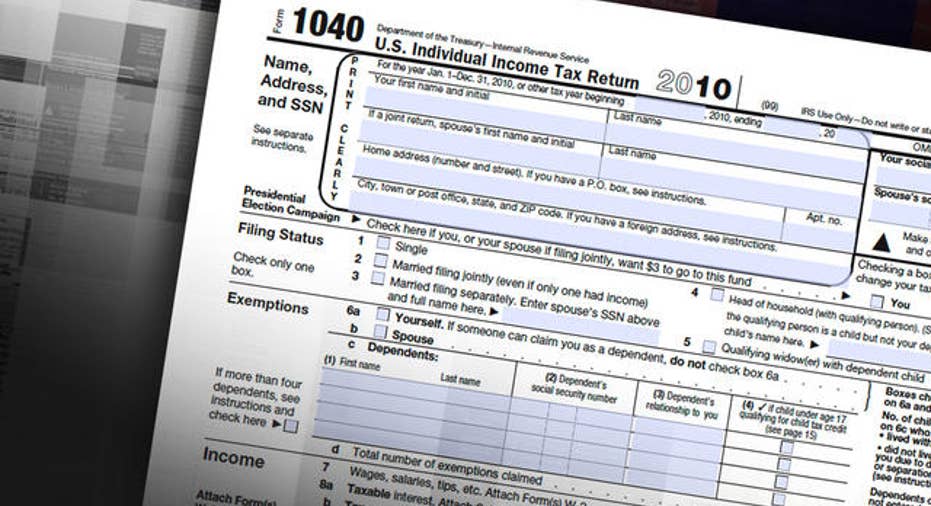Nine Year-End Tax Tips for a New Tax Era

Time is running out to take your 2011 tax breaks. Use them while you can - with tax changes looming, financial advisers say some long-standing deductions may soon disappear.
"We're moving into a new tax era. Even if the Bush tax cuts don't expire in 2013 you'll see 'backdoor' tax increases, like limits on deductions," says Eleanor Blayney, a Mclean, Virginia adviser. "We usually say to save deductions for a high-tax year - but if they may disappear, you want to take them in 2011 or 2012 if you can."
Fortunately, there's still time to lower your tax bill now by maximizing your pretax savings, adjusting your income, adjusting your investments and considering your donations. Here's how:
1. Increase your 401(k) contribution if you're under the limit ($16,500 in 2011; $22,000 if you're 50 or older), by calling your plan administrator and asking to boost your payroll deduction. Your employer's plan may have lower limits if it caps contributions at a percentage of salary.
2. If you have self-employment income - from a consulting gig, for example - you can boost your savings to the full limit by also contributing to an individual 401(k) plan, says Jim Holtzman, a financial planner at Legend Financial Advisors in Pittsburgh, Pennsylvania. They're available at big brokerage and mutual fund companies. The deadline is December 31 to open one, but you have until April 15, 2012 to fund it.
3. Top off your health savings account if you have one. The 2011 contribution limit is $3,050 for an individual, $6,150 for a family, and an extra $1,000 for anyone over 55 but not yet enrolled in Medicare. Many people assume HSA contributions are fixed at open enrollment, says Tom Billet, a principal at employee benefits consultant Towers Watson. Not so: "You can ask to change a payroll deduction, or write a check to the HSA and take it off your taxes." Contributions and earnings are tax-free, as are withdrawals for qualified medical expenses.
(And while you're at it, don't forget to empty your 2011 flexible spending account. While you can carry over money in an HSA from one year to the next, you forfeit any flex account money you don't spend annually. For many workers, the deadline is December 31, but employers can extend the deadline until next March 15. Find out your cut-off date and add eligible expenses to your shopping list.)
4. Make your 529 college plan contributions by year-end if you live in one of the 34 states that gives you a tax break for them. Among the most generous: Indiana, Iowa and Vermont.
5. Do a 2011 Roth conversion, especially if your income fell dramatically this year. A big income drop often leaves a taxpayer with high-deductible expenses in the low-income year, says Robert Schmansky, founder and principal of Clear Financial Advisors in Bloomfield Hills, Michigan. The upshot: Your Roth conversion might be tax-free.
6. Sell losers in your taxable investment account. A capital loss offsets up to $3,000 of ordinary income on your 2011 return. But wait 30 days before buying back the same security, or the 'wash sale' rule says you can't claim your loss. Consider selling some winners, too, to take advantage of today's very low capital gains rates, advises Loretta Nolan, a financial planner in Old Greenwich, Connecticut. "There's no wash sale rule for gains. You can lock in gains at low rates and buy back stock you intend to hold for years."
7. Donate with a credit card. If you itemize, charitable contributions charged this year are deductible on your 2011 return even though you don't pay the bill until 2012.
8. Make a charitable donation directly from your IRA if you're over 70 1/2. The gift qualifies as your required annual distribution, but it does not increase your adjusted gross income, says Neil Geschwind, a partner at Holtz Rubenstein Reminick in Melville, New York. A lower AGI can result in advantages ranging from a lower Medicare premium to a zero capital gains rate. This tactic is especially useful for people who don't itemize deductions.
9. Clean your closets. You can take a tax deduction for donated household items worth under $5,000 without a formal appraisal of their value.



















